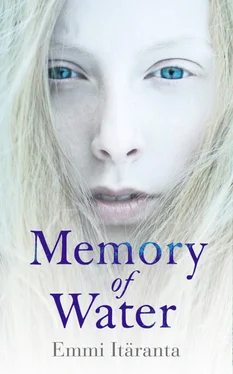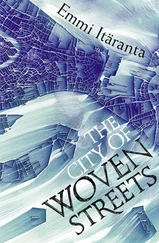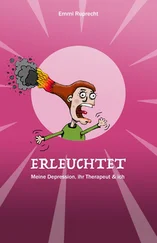Sanja looked at me. This was new. The village had seen water shortages before, but no one had ever needed to beg for water. The little girl’s cheeks were hollow and eyes big.
‘Let’s stop,’ I told Sanja.
The woman was holding up her mug. I took my waterskin and poured some water in it. She clenched my arm with her free hand and squeezed.
‘Thank you, miss! You’re a good person. Thank you, thank you, may fresh waters flow your way!’ She continued her flood of thanks and I was beginning to feel embarrassed. Just as I had closed the waterskin and placed it back in the cart, another woman approached me. Two small children were holding on to her hands.
‘You wouldn’t have a drop for us, too, would you?’ she asked.
Sanja threw me a pointed glance.
‘We need to go, Noria,’ she said.
She was right. I saw everyone waiting outside the medical centre looking at me hopefully, pondering their chances and best ways of asking for water. If I stayed, I would have nothing left in my skins.
‘I’m sorry,’ I told the woman. ‘I’m really, really sorry, but I can’t. This is all I have for myself.’
She looked at me, her face settling to disbelief and then something nastier.
‘You’re the tea master’s daughter, aren’t you?’ she said.
‘Come on, Noria,’ Sanja said.
‘I should’ve known. Tea masters have always thought they’re too good for this village,’ the woman continued.
Blood rushed to my face and I turned away, pulling the cart across the cracked surface of the street. I heard the crowd behind muttering and thought I made out my own name, but I wanted to hear nothing more.
‘Just ignore them,’ Sanja said. ‘It’s not your fault that you can’t help everyone.’
My face felt hot and my throat was thick. I didn’t know what to say. I wanted to get out of here. I tried to think of what was ahead, what had been the real reason for my coming to the village today. Even through the blend of humiliation and confusion, I felt a faint flash of excitement.
We turned from the street corner to take a circuitous route. I had time to see a low, grey-plastered house with a blue circle that had appeared on its door four weeks earlier, and the gaping dark windows with no movement or sound flickering behind them. Our feet chose a different direction on their own. These days walking in the village was not straightforward, but new paths born of wordless pacts had slowly come to replace the old ones as the mark of water crime had claimed space along the streets. There were now a dozen houses carrying the blue circle. The grey-plastered one was the latest among them. Their mute spectres stood along the edges of the roads, surrounded by a ring of silence that no one would cross unless it was unavoidable. The residents of the neighbouring houses continued their lives as if there was a swirling, all-swallowing emptiness in the place of the criminal house that would sweep them off the face of the earth if they as much as glanced in its direction.
There were whispers in the village that the people who lived in the water crime houses had been seen once or twice, picking something up from their doorstep or standing quietly outside, never leaving their own front yard, usually early in the morning or late in the night. These tales were received the same way as any ghost stories: with a mixture of fear and curiosity that faded into disbelief in daylight.
The truth was that no one still knew for certain what happened to the residents of the marked houses. It was easier not to ask.
Silence is not needed to chain tame things.
A cold gale tugged at the roof-corners and lashed us occasionally through the gaps between the houses. In one backyard a bone-thin man I recognised as a teacher at the village school was rubbing his scalp with light brown powder, a mixture of clay and bitter tree-bark flour, which was sold in market stalls as dry shampoo. I was used to soapwort, which grew behind the teahouse in thick tufts, and I liked the way it foamed between my fingers when mixed with bathwater. For the first time it occurred to me that someone might wonder why I never bought dry shampoos or soap flakes. I didn’t know how many changes I would have to make to make my life appear the same as any other villager’s.
As we approached Sanja’s house, I couldn’t wait any longer.
‘I’m going scavenging,’ I said. ‘Do you want to come?’
Sanja sighed.
‘I can’t. There’s too much to do at home.’ She glanced at my waterskins. ‘Do you want to leave those at my place and get them later?’ she asked. ‘You’ll never be able to haul them all the way to the plastic grave and back.’
‘You can keep them,’ I said.
Sanja looked at me as if I had just offered her a flight on the back of an Ocean-Dragon.
‘Don’t be stupid!’ she said. ‘You’re not going to get more water until next week. Of course I can’t take them.’
‘I don’t need them,’ I said. ‘I’ve got water at home for the rest of the week. Please, keep them.’
Sanja looked like she was going to insist, but let out a deep breath instead and said, ‘This once, but don’t you dare try this again.’
The pungent smell of the plastic grave floated towards me. I passed a place where people were trying to fill waterskins and buckets from the shallow, murky-watered brook that ran near the edge of the grave. My parents had always warned me to never drink from it. They said the water was contaminated by the toxins of the grave and would make me sick. Villagers had tended to avoid it in the past, but lately whenever I came here I saw someone trying to draw from it. I had once told an elderly woman the water was not good for drinking.
‘What would you have me drink, then?’ she had said. ‘Air, or sand, perhaps?’
That was the last time I had spoken to anyone at the brook.
I nearly stopped when I recognised a red-lipped face behind the insect hood among the handful of water-seekers. Ninia was crouched at the edge of the brook, filling a transparent skin with yellow-brown water. There really was something cockroach-like about her stubby figure, brown clothes and laboured movements, but just as this image took shape in my mind, I also felt a stab of shame. What is she doing but trying to survive as best she can? What is any one of us doing but that? I guessed Jukara’s employers weren’t paying quite as well as she had suggested. She turned her face away from me, and I couldn’t tell if she had not seen me or if she chose to pretend she hadn’t.
I walked past without stopping.
In the ever-changing, eye-betraying terrain of the plastic grave it was hard to discern landmarks, but I knew my way. Near the centre of the grave concrete elements twice as tall as me stuck out of the rubbish mountain. I stopped next to them and looked towards the edge of the grave, until I spotted an ancient, rusted-through carcass of a large past-world vehicle. The places where the wheels had been were still visible, as was the dead dashboard, but the seats and all still-usable metal parts were long gone. No one seemed to ever move this piece of dead weight, because it would have required the strength of at least five people, and there didn’t seem to be much to find in this corner of the grave. I walked to the skeleton of the vehicle.
Out of habit I pushed my hand through a hole in the dashboard and felt around until I reached the smooth surface of a plastic box approximately the size of a saucer. I didn’t need to take it out: it was enough to know that it was there. It was one of the time capsules Sanja and I had hidden in our favourite places when we were younger. They contained things like pebbles, dried flowers, homemade seagrass wristbands and treasures found in the plastic grave. We had always painted the date on the inside of the lid of each capsule, then dipped our fingers in paint and pressed our fingerprints next to it. On the outside we had marked the date when we were allowed to open the capsule, usually at least ten years in the future. This was the last one we had made, and for many years we had always checked that is was still in place every time we visited the grave.
Читать дальше
Конец ознакомительного отрывка
Купить книгу












